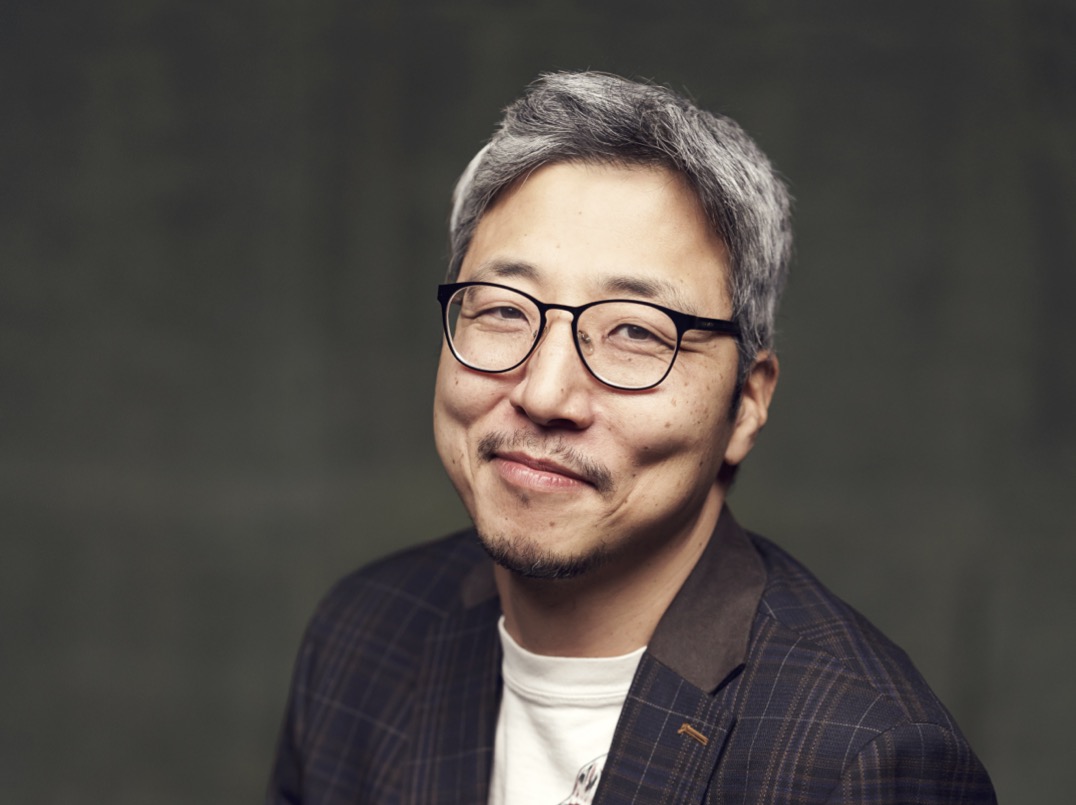Prakash, Praneet, Jiang, Xue, Richards, Luke, Schofield, Zoe, Schäfer, Patrick, Polin, Marco, Soyer, Orkun S. and Asally, Munehiro (2024) Emergence of synchronised growth oscillations in filamentous fungi. Journal of The Royal Society Interface, 21 (219). 20240574. doi:10.1098/rsif.2024.0574 ISSN 1742-5689.
de Souza-Guerreiro, Tailise Carolina, Huan Bacellar, Letícia, Santana da Costa, Thyerre, Tasic, Ljubica and Asally, Munehiro (2024) Membrane potential dynamics unveil the promise of Bioelectrical Antimicrobial Susceptibility Testing (BeAST) for anti-fungal screening. mBio, 15 (8). e0130224. doi:10.1128/mbio.01302-24 ISSN 2150-7511.
Skates, Emily, Delattre, Hadrien, Schofield, Zoe, Asally, Munehiro and Soyer, Orkun S. (2023) Thioflavin T indicates mitochondrial membrane potential in mammalian cells. Biophysical Reports, 3 (4). 100134. doi:10.1016/j.bpr.2023.100134 ISSN 2667-0747.
Oka, Masahiro, Otani, Mayumi, Miyamoto, Yoichi, Oshima, Rieko, Adachi, Jun, Tomonaga, Takeshi, Asally, Munehiro, Nagaoka, Yuya, Tanaka, Kaori, Toyoda, Atsushi, Ichikawa, Kazuki, Morishita, Shinichi, Isono, Kyoichi, Koseki, Haruhiko, Nakato, Ryuichiro, Ohkawa, Yasuyuki and Yoneda, Yoshihiro (2023) Phase-separated nuclear bodies of nucleoporin fusions promote condensation of MLL1/CRM1 and rearrangement of 3D genome structure. Cell Reports, 42 (8). 112884. doi:10.1016/j.celrep.2023.112884 ISSN 2211-1247.
Back, Oliver, Asally, Munehiro, Wang, Zuowei and Hayashi, Yoshikatsu (2023) Electrotaxis behavior of droplets composed of aqueous Belousov-Zhabotinsky solutions suspended in oil phase. Scientific Reports, 13 (1). 1340. doi:10.1038/s41598-023-27639-8 ISSN 2045-2322.
de Souza‐Guerreiro, Tailise Carolina , Bondelli, Gaia, Grobas, Iago, Donini, Stefano, Sesti, Valentina, Bertarelli, Chiara, Lanzani, Guglielmo, Asally, Munehiro and Paternò, Giuseppe Maria (2023) Membrane targeted azobenzene drives optical modulation of bacterial membrane potential. Advanced Science, 10 (8). 2205007. doi:10.1002/advs.202205007 ISSN 2198-3844.
Grobas, Iago, Asally, Munehiro and Polin, Marco (2022) The dynamics of single-to-multi layer transition in bacterial swarms. Frontiers in Soft Matter, 2 . 936779. doi:10.3389/frsfm.2022.936779 ISSN 2813-0499.
Asally, Munehiro and Prindle, Arthur (2021) Microbial electrophysiology. Bioelectricity, 3 (2). p. 110. ISSN 2576-3105 doi:10.1089/bioe.2021.0016
de Souza-Guerreiro, Tailise Carolina and Asally, Munehiro (2021) Seeking insights into aging through yeast mitochondrial electrophysiology. Bioelectricity, 3 (2). pp. 111-115. doi:10.1089/bioe.2021.0011 ISSN 2576-3105.
Grobas, Iago, Polin, Marco and Asally, Munehiro (2021) Swarming bacteria undergo localized dynamic phase transition to form stress-induced biofilms. eLife, 10 . e62632. doi:10.7554/eLife.62632 ISSN 2050-084X.
Kano, Takeshi, Yasui, Kotaro, Mikami, Taishi, Asally, Munehiro and Ishiguro, Akio (2021) An agent-based model of the interrelation between the COVID-19 outbreak and economic activities. Proceedings of the Royal Society A: Mathematical, Physical and Engineering Sciences, 477 (2245). 20200604. doi:10.1098/rspa.2020.0604 ISSN 1364-5021.
Cremin, Kelsey , Jones, Bryn, Teahan, James, Meloni, Gabriel N., Perry, David, Zerfass, Christian, Asally, Munehiro, Soyer, Orkun S. and Unwin, Patrick R. (2020) Scanning ion conductance microscopy reveals differences in the ionic environments of gram-positive and negative bacteria. Analytical Chemistry, 92 (24). pp. 16024-16032. doi:10.1021/acs.analchem.0c03653 ISSN 0003-2700.
Grobas, Iago, Bazzoli, Dario G. and Asally, Munehiro (2020) Biofilm and swarming emergent behaviours controlled through the aid of biophysical understanding and tools. Biochemical Society Transactions, 48 (6). pp. 2903-2913. doi:10.1042/BST20200972 ISSN 0300-5127.
Kantsler, Vasily, Ontañón-McDonald, Elena, Kuey, Cansu, Ghanshyam, Manjari J. , Roffin, Maria Chiara and Asally, Munehiro (2020) Pattern engineering of living bacterial colonies using meniscus-driven fluidic channels. ACS Synthetic Biology, 9 (6). pp. 1277-1283. doi:10.1021/acssynbio.0c00146 ISSN 2161-5063.
Benarroch, Jonatan M. and Asally, Munehiro (2020) The microbiologist’s guide to membrane potential dynamics. Trends in Microbiology, 28 (4). pp. 304-314. doi:10.1016/j.tim.2019.12.008 ISSN 0966-842X.
Sirec, Teja, Benarroch, Jonatan M., Buffard, Pauline, Garcia-Ojalvo, Jordi and Asally, Munehiro (2019) Electrical polarization enables integrative quality control during bacterial differentiation into spores. iScience, 16 . pp. 378-389. doi:10.1016/j.isci.2019.05.044 ISSN 2589-0042.
Stratford, James P., Edwards, Conor L.A., Ghanshyam, Manjari J. , Malyshev, Dmitry, Delise, Marco A., Hayashi, Yoshikatsu and Asally, Munehiro (2019) Electrically induced bacterial membrane-potential dynamics correspond to cellular proliferation capacity. Proceedings of the National Academy of Sciences of the United States of America, 116 (9). pp. 9552-9557. doi:10.1073/pnas.1901788116 ISSN 0027-8424.
Zerfaß, Christian, Asally, Munehiro and Soyer, Orkun S. (2019) Interrogating metabolism as an electron flow system. Current Opinion in Systems Biology, 13 . pp. 59-67. doi:10.1016/j.coisb.2018.10.001 ISSN 2452-3100.
Jiang, Xue, Zerfaß, Christian, Eichmann, Ruth, Asally, Munehiro, Schäfer, Patrick and Soyer, Orkun S. (2018) Impact of spatial organization on a novel auxotrophic interaction among soil microbes. ISME Journal, 12 . pp. 1443-1456. doi:10.1038/s41396-018-0095-z ISSN 1751-7370.
Prindle, Arthur, Liu, Jintao, Asally, Munehiro, Garcia-Ojalvo, Jordi and Suel, Gurol (2018) A novel bacterial cell to cell communication mechanism. Biophysical Journal, 114 (3). 335a. doi:10.1016/j.bpj.2017.11.1874 ISSN 0006-3495.
Jiang, Xue, Zerfaß, Christian, Eichmann, Ruth, Asally, Munehiro, Schäfer, P. (Patrick) and Soyer, Orkun S. (2017) Impact of spatial organization on a novel auxotrophic interaction among soil microbes. UNSPECIFIED. BioRxiv: Cold Spring Harbour Laboratories. (Submitted)
Prindle, Arthur, Liu, Jintao, Asally, Munehiro, Ly, San, Garcia-Ojalvo, Jordi and Süel, Gürol M. (2015) Ion channels enable electrical communication in bacterial communities. Nature, 527 . pp. 59-63. doi:10.1038/nature15709 ISSN 0028-0836.
Liu, Jintao, Prindle, Arthur, Humphries, Jacqueline, Gabalda-Sagarra, Marçal, Asally, Munehiro, Lee, Dong-yeon D., Ly, San, Garcia-Ojalvo, Jordi and Süel, Gürol M. (2015) Metabolic co-dependence gives rise to collective oscillations within biofilms. Nature, 523 (7562). pp. 550-554. doi:10.1038/nature14660 ISSN 0028-0836.
Oka, Masahiro, Moriyama, Tetsuji, Asally, Munehiro, Kawakami, Koichi and Yoneda, Yoshihiro (2013) Differential role for transcription factor oct 4 nucleocytoplasmic dynamics in somatic cell reprogramming and self-renewal of embryonic stem cells. Journal of Biological Chemistry, 288 (21). pp. 15085-15097. doi:10.1074/jbc.M112.448837 ISSN 0021-9258.
Asally, Munehiro, Kittisopikul, M., Rue, P., Du, Y., Hu, Z., Cagatay, T., Robinson, A. B., Lu, H., Garcia-Ojalvo, Jordi and Suel, G. M. (2012) Localized cell death focuses mechanical forces during 3D patterning in a biofilm. Proceedings of the National Academy of Sciences of the United States of America, 109 (46). pp. 18891-18896. doi:10.1073/pnas.1212429109 ISSN 0027-8424.
Yasuda, Yoshinari, Miyamoto, Yoichi, Yamashiro, Tomoko, Asally, Munehiro, Masui, Ayumi, Wong, Chin, Loveland, Kate L and Yoneda, Yoshihiro (2011) Nuclear retention of importin α coordinates cell fate through changes in gene expression. The EMBO Journal, 31 (1). pp. 83-94. doi:10.1038/emboj.2011.360 ISSN 0261-4189.
Asally, Munehiro, Yasuda, Yoshinari, Oka, Masahiro, Otsuka, Shotaro, Yoshimura, Shige H., Takeyasu, Kunio and Yoneda, Yoshihiro (2011) Nup358, a nucleoporin, functions as a key determinant of the nuclear pore complex structure remodeling during skeletal myogenesis. FEBS Journal, 278 (4). pp. 610-621. doi:10.1111/j.1742-4658.2010.07982.x ISSN 1742-464X.

